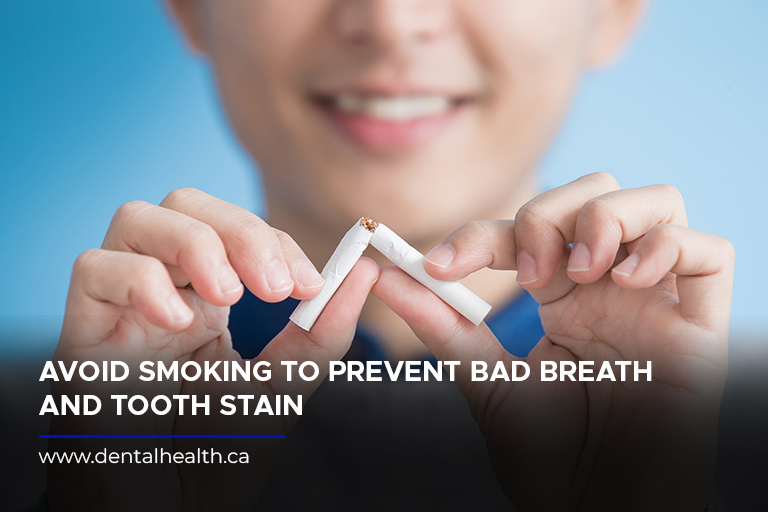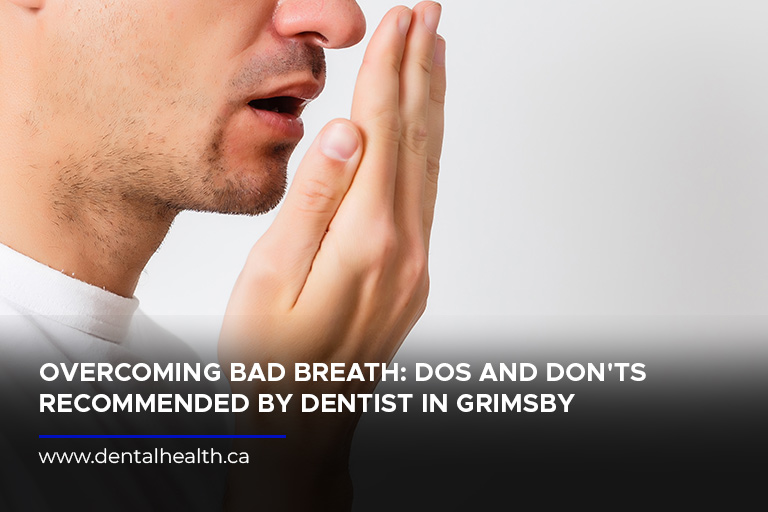Let’s face it, bad breath happens to the best of us. It’s a common issue, affecting millions worldwide, and can be a source of embarrassment and self-consciousness. However, don’t let it hold you back from social interactions or living your best life. With the right knowledge and a little bit of effort, you can confidently say goodbye to bad breath. That’s why we’ve reached out to a local dentist in Grimsby to provide you with expert advice and practical tips on how to maintain fresh breath and improve your oral health.
Dentists are the oral health experts, trained to understand the intricate workings of the mouth and identify the root causes of bad breath. They have the knowledge and experience to recommend effective solutions and help you achieve a healthier, fresher smile. In this article, we will share a dentist’s dos and don’ts for maintaining fresh breath, empowering you to take control of your oral hygiene and banish bad breath for good.
Understanding Bad Breath – The Root Causes
Bad breath, also known as halitosis, can be triggered by various factors. Understanding the root causes is essential for finding effective solutions. Some common causes of bad breath include:
- Poor Oral Hygiene: Not brushing and flossing regularly allows food particles to remain in the mouth, leading to bad breath. Bacteria break down these particles, causing an unpleasant odour.
- Diet: Certain foods, such as garlic, onions, and spices, can cause bad breath. These foods are absorbed into the bloodstream and carried to the lungs, affecting your breath.
- Dry Mouth: Saliva helps cleanse the mouth and remove particles that cause bad odours. A lack of saliva, often due to medications or medical conditions, can lead to bad breath.
- Tobacco Products: Smoking and chewing tobacco can leave chemicals in the mouth that cause bad breath. Tobacco use also increases the risk of gum disease, another source of bad breath.
- Medical Conditions: Some illnesses, such as respiratory infections, diabetes, and liver or kidney problems, can cause bad breath. These conditions may produce specific odours that affect breath.
- Oral Infections: Infections in the mouth, such as gum disease, cavities, or mouth sores, can contribute to bad breath. Bacteria associated with these conditions produce foul-smelling compounds.
The Dentist’s DOs for Fresh Breath

Taking proactive steps can significantly improve your breath. Here are some recommended dos for maintaining fresh breath.
- Brush and Floss Regularly: Brush your teeth at least twice a day for two minutes each time, ensuring you reach all surfaces. Floss daily to remove food particles and plaque from between teeth and along the gumline, as these are prime areas for bacteria to thrive.
- Clean Your Tongue: Bacteria accumulate on the tongue, contributing to bad breath. Use a tongue scraper or the back of your toothbrush to gently clean your tongue from back to front, removing the coating of bacteria and debris.
- Stay Hydrated: Drink plenty of water throughout the day. Water helps wash away food particles and bacteria, and it also stimulates saliva production, which is crucial for maintaining a healthy oral environment.
- Use Mouthwash: An antibacterial mouthwash can help kill bacteria that cause bad breath and leave your mouth feeling fresh. Choose an alcohol-free mouthwash with fluoride to avoid drying out your mouth and for added protection against cavities.
- Chew Sugar-Free Gum: Chewing sugar-free gum after meals can help increase saliva flow, which naturally cleanses the mouth and washes away food particles. Look for gum sweetened with xylitol, which has been shown to have additional oral health benefits.
- Eat a Healthy Diet: Limit sugary drinks and snacks, as these fuel the bacteria that cause bad breath. Instead, focus on a balanced diet rich in fruits and vegetables, which can help clean teeth, stimulate saliva production, and promote overall oral health.
- Visit Your Dentist Regularly: Schedule regular dental checkups and cleanings, typically every six months. Professional cleanings remove plaque and tartar buildup that regular brushing can’t reach, helping to prevent bad breath and other oral health problems.
The Dentist’s DON’Ts for Avoiding Bad Breath

Maintaining fresh breath is achievable with consistent effort and the right approach. Here are some dentist-recommended dos for a fresher smile:
- Don’t Skip Oral Hygiene: Neglecting to brush and floss regularly allows plaque and food debris to accumulate, feeding bacteria that cause bad breath. Make thorough oral hygiene a non-negotiable part of your daily routine.
- Don’t Smoke or Use Tobacco: Smoking and tobacco use not only stain teeth and cause bad breath but also introduce harmful chemicals that linger in your mouth. Quitting is the best way to improve your breath and overall health.
- Don’t Eat Odorous Foods Frequently: While delicious, foods like garlic, onions, and spicy dishes can leave a lasting odour on your breath. Enjoy them in moderation and brush thoroughly afterwards to minimize the lingering smell.
- Don’t Ignore Dental Issues: Untreated dental problems like cavities or gum disease can contribute to chronic bad breath. Address any dental concerns promptly to eliminate potential sources of bad breath and maintain a healthy smile.
- Don’t Use Alcohol-Based Mouthwashes: While some mouthwashes can freshen breath, those containing alcohol can dry out your mouth, creating an environment where odour-causing bacteria thrive. Choose alcohol-free options to avoid this issue.
- Don’t Forget to Replace Your Toothbrush: Over time, toothbrush bristles become frayed and less effective at removing plaque and debris. Replace your toothbrush every 3 to 4 months to ensure optimal cleaning and prevent bacterial buildup.
- Don’t Rely on Mints or Gum Alone: Mints and gum offer temporary relief but don’t tackle the root causes of bad breath. They mask the smell without addressing the underlying issues. Prioritize good oral hygiene for lasting fresh breath.
When to See Your Grimsby Dentist
Sometimes, professional help is needed to tackle bad breath effectively. Here are some situations when you should see your dentist.
- Persistent Bad Breath: If bad breath persists despite good oral hygiene, it’s time to see your dentist. It could be a sign of an underlying issue.
- Gum Disease Symptoms: Symptoms like red, swollen, or bleeding gums can indicate gum disease, a common cause of bad breath. Seek treatment promptly.
- Dental Pain or Discomfort: Pain or discomfort in your teeth or gums could indicate cavities or infections, both of which can cause bad breath.
- Dry Mouth Issues: If you frequently experience dry mouth, consult your dentist. They can recommend treatments or products to help manage the condition.
- Medical Condition Suspicions: If you suspect that a medical condition is causing bad breath, your dentist can help diagnose the issue and recommend appropriate action.
Overcoming bad breath is a journey that involves consistent effort and the right approach. By following the dentist-recommended dos and avoiding the don’ts, you can achieve and maintain fresh breath, boosting your confidence and improving your overall oral health. Remember, your Grimsby dentist is your partner in this journey, providing expert advice and personalized solutions to address your specific needs.
For more information or to schedule an appointment, contact Kingsway Family Dentistry at (905) 563-4001.

